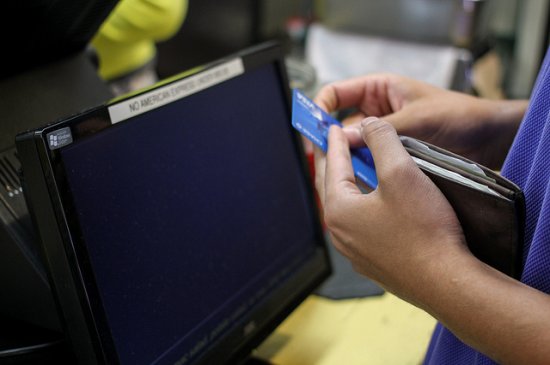
Image source: Flickr User Andres Rodriguez
Many of our clients that come in for a bankruptcy consultation have overwhelming credit card debts, but these generally aren't the underlying cause of their financial problems. And credit card debts alone should not be the reason you file bankruptcy – particularly a Chapter 7, since it's an option you can exercise rarely. If credit cards are your primary financial struggle, there are other approaches to try to shed the debt that you should explore first.#4 Negotiated Settlement
If you're not paying your bills on time and are maxed at, your card issuer already knows there is a problem. Because the longer this persists, the more likely you are to fall farther behind, they may work a deal with you to accept a lump sum to settle the debt. The plus side to this approach is that you'll get shed of that debt immediately. But here are the downsides.
First, you need a lump sum to pay and if you had it, you'd likely be paying your bill. If you can borrow from your family, that's not a bad plan. But borrowing from a payday lender or other shady source is a very bad idea. Second, your credit rating will take a hit because of the settlement and the closure of your card account. Third, you'll receive a 1099-C for any canceled debt (the portion the company “wrote off”) and that will be have to be claimed as “income” on your tax return and you'll owe taxes on it.
#3 Credit Counseling
A non-profit credit counseling agency can help with this option – never use a firm that's operating on a for-profit basis. Here's a site that lists the best. How this works is that the agency works with you and helps you figure out why you're over your head on credit card debt and addresses those issues with you. They educate you on better handling your finances and work with you throughout the process. They contact all of your card issuers, discuss your difficulties and may be able to set up a debt management plan (DMP) for you.
With a DMP, you'll have a reasonable amount to pay each month to the credit counseling agency and they distribute it to your creditors according to the plan. The upside is this can offer you an affordable option to get out of debt, pay at lower interest rates and not face tax consequences from canceled debt. The downside is your credit rating will take a hit, you can't open any new card accounts while you're under a DMP and it will impact your ability to take on new credit like a mortgage, auto loan or refinance of either.
#2 Debt Consolidation
The intent of a debt consolidation is that you actually take out one large loan and pay off all your credit cards at once. Credit card interest rates can be punishing and if the larger loan can be obtained at a more advantageous interest rate, you'll be ahead of the game. But there are downsides. Some of these loans may tack on a large origination fee of up to 5% of the loan value. Lump loans that are at higher rates may be just as bad as the original debt.
The upsides are that your credit rating won't take a hit and you won't face any tax consequences. The downsides are that your credit cards will have zero balances and, if you haven't addressed the reasons you got into debt, you may be tempted to use them again and this can spell financial disaster when you have the loan to pay plus the new card debt. If you can control your spending, this may be a preferable plan for you.
#1 Chapter 7 or Chapter 13 Bankruptcy
If you have other unsecured debts along with your huge credit bills, Chapter 7 bankruptcy may be the best alternative if you are so deep in debt that your income cannot support your obligations. It will wipe out most unsecured debts – with the exception of student loans and some income taxes – and even these can be taken care of under certain circumstances.
If you are behind on your mortgage or car loan as well as your credit cards, you may want to consider filing Chapter 13. This will allow you three to five years under a repayment plan to catch up your past due balances and, at the end of your plan, remaining credit card balances will be discharged. This can be a big win and won't increase your tax burden with a 1099-C.
To find out if your circumstances are right for a Chapter 7 or Chapter 13 bankruptcy or would be better met by one of the other options mentioned above, contact us. The North Carolina bankruptcy experts at the law offices of John T Orcutt offer a free consultation and will let you know if you're a good fit for a bankruptcy or if you can solve your debt issues in another way.
